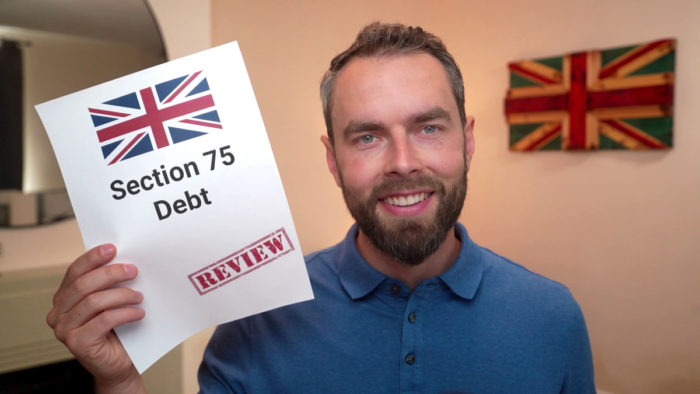Section 75 Debt – All You Need to Know
For free & impartial money advice you can visit MoneyHelper. We work with The Debt Advice Service who provide information about your options. This isn’t a full fact-find, some debt solutions may not be suitable in all circumstances, ongoing fees might apply & your credit rating may be affected.

For free & impartial money advice you can visit MoneyHelper. We work with The Debt Advice Service who provide information about your options. This isn’t a full fact-find, some debt solutions may not be suitable in all circumstances, ongoing fees might apply & your credit rating may be affected.
Are you wondering what Section 75 Debt is? This is the perfect place to find out. We’ll answer all your questions about this type of debt, which is linked to an employer’s duty under the Pensions Act 1995.
Here’s what we’ll explain in this article:
- What is Section 75 Employer Debt?
- How is it worked out?
- When does it need to be paid?
- What happens if it’s not paid?
- How much might the debt be?
Each month, over 170,000 people come to our website for guidance on their debt issues. We understand that you might be worried about what Section 75 Debt means for you, and we’re here to help.
Our team knows a lot about this topic, as we’ve offered guidance to many others who were in your shoes. Let’s begin our journey to understand Section 75 Debt better.
What is the Section 75 Employer Debt?
Under the section 75 Pensions Act 1995, an employer has to pay a statutory debt on the pensions they give out to their employees.
Pension schemes can sometimes be underfunded or the payments may be delayed or might cease altogether. This debt is for such an event.
Under the section 75 Pension Act 1995, an employer has to pay a debt to the scheme’s trustees if he is participating in a defined benefit scheme (DBS) and the scheme is underfunded.
A DBS is a pension fund that promises its members a certain defined level of benefit upon their death or their retirement.
Usually, the cost is covered by paying the employee a monthly amount close to their salary package right before their retirement.
If the scheme is a multi-employer scheme, and any participating employer withdraws, this debt’s value must be paid by the employer.
The exact value of the money owed varies from case to case and follows the employer debt regulations.
What Happens if I Don’t Pay the Employer Debt?
The dues owed only become payable when one of the participating employers tells that they wishe to leave or to trigger the debt.
In such a case, if there is a reluctance to pay the dues, the Pensions Regulator has the right to exercise certain powers which are known as anti-avoidance powers.
They can pass a contribution notice whose targets are required to pay cash to the plan.
In some circumstances the cash is payable directly and while in others, it must be paid to the Pension Protection Fund.
Other than this, the Regulator could ask the employers to place a financial support in place to facilitate the plan.
How a debt solution could help
Some debt solutions can:
- Stop nasty calls from creditors
- Freeze interest and charges
- Reduce your monthly payments
A few debt solutions can even result in writing off some of your debt.
Here’s an example:
Situation
| Monthly income | £2,504 |
| Monthly expenses | £2,345 |
| Total debt | £32,049 |
Monthly debt repayments
| Before | £587 |
| After | £158 |
£429 reduction in monthly payments
If you want to learn what debt solutions are available to you, click the button below to get started.
How is Section 75 Debt Calculated?
Section 75 debts are calculated by coming up with the number the departing employer originally may have owed to the trustees.
When an employer withdraws from the scheme, the active members also charge him for the estimated expense that might be incurred.
Basically, paying pension on a regular basis every month isn’t as easy as it sounds. The accounts get complicated and everything gets mixed up.
To avoid this, employers contact some insurance company which pays out the fixed monthly pension for life and the employer has to pay the total amount of the lifetime pension upfront to the insurance company, with additional fees for the service.
In case some employer wants to opt out of the scheme members, they must pay all the remaining amount of the pension upfront.
Thousands have already tackled their debt
Every day our partners, The Debt Advice Service, help people find out whether they can lower their repayments and finally tackle or write off some of their debt.

Natasha
I’d recommend this firm to anyone struggling with debt – my mind has been put to rest, all is getting sorted.
Reviews shown are for The Debt Advice Service.
When Does the Section 75 Debt Become Payable?
It becomes payable when:
- One of the employers tells the trustee that he wishes to trigger it.
- The pension plan winds up.
- One of the employers becomes insolvent and can no longer continue.


